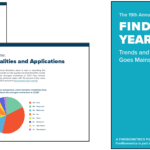Canada is opening its doors to Ukrainians who have been displaced following Vladimir Putin’s invasion of their country. To that end, Immigration, Refugees and Citizenship Canada (IRCC) has created a new Canada-Ukraine Authorization for Emergency Travel (CUAET) program that waives most immigration requirements and allows Ukrainian citizens to apply for temporary residency in Canada.

Those interested in taking advantage of the program can apply for a Canadian visitor visa online, though they will need to make a trip to visa application centre (VAC) to submit biometric face and fingerprint data to complete the process. Canada is currently not operating any VACs in Ukraine, though it maintains a network of VACs throughout Europe, and is devoting more staff and resources to VACs in neighboring countries to increase capacity. IRCC is anticipating particularly high demand at its VACs in Chisinau, Warsaw, Vienna, and Bucharest, located in Moldova, Poland, Austria, and Romania, respectively.
IRCC stressed that CUAET is a temporary residency program rather than a refugee program, and will issue temporary visas that are good for a three-year term. However, IRCC is taking other steps to make the transition as smooth as possible. Most notably, the organization is waiving all of its application and processing fees, and will try to turn over CUAET applications within 14 days. Ukrainians are also invited to apply for an open work permit when they apply for their visa, which will allow them to work in Canada for the duration of their stay. Children can enroll in school as soon as they arrive, while those at the post-secondary level can apply for a study permit once they arrive in Canada.
Canada is waiving its COVID-19 vaccination requirements for CUAET applications, though all travelers are still expected to complete a COVID-19 test and quarantine if necessary. The program is open to all Ukrainian citizens, and to any immediate family members, regardless of nationality. Canada will issue single journey travel documents on a case-by-case basis to those that do not have a valid passport, while Canadian businesses are invited to post employment opportunities on a Jobs for Ukraine webpage.
The government of Canada made biometric data collection mandatory for visitors from Europe, Africa, and the Middle East in 2018, and then extended the program to the Asia Pacific region and the Americas in 2019. The IRCC has since issued a Request for Information to kick off its search for a new biometric identification system that can better protect people’s civil liberties, while the Canadian Borders Services Agency has solicited proposals for a new Office of Biometrics and Identity Management.
–
May 21, 2022 – by Eric Weiss








Follow Us